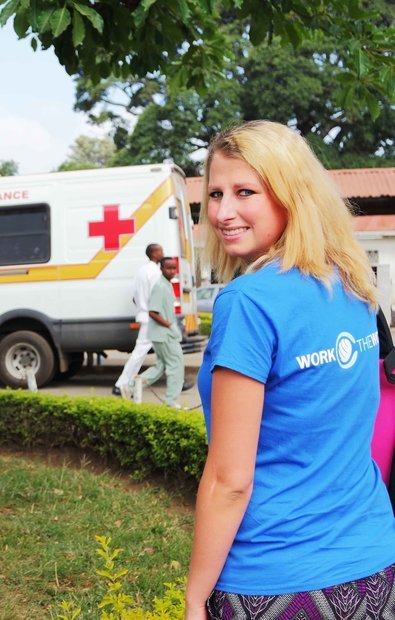WHAT IS AN OVERSEAS PARAMEDIC SCIENCE PLACEMENT WITH WORK THE WORLD?
Our placements for paramedic science students and graduates take place in low-resource hospitals with busy wards.
You’ll see just how big the differences between healthcare systems can be. And you’ll come across conditions and practices you’ve never seen before.
It’s worth pointing out that very few countries benefit from sophisticated ambulance services. With that in mind, your role in our destinations is focused on emergency medicine.
You’ll observe how local specialists deal with emergencies using limited resources, see which sociocultural issues affect the provision of care (in some destinations you’ll find there’s less of a sense of urgency), and see practices — like manual intubation without anaesthesia — that you won’t see back home.
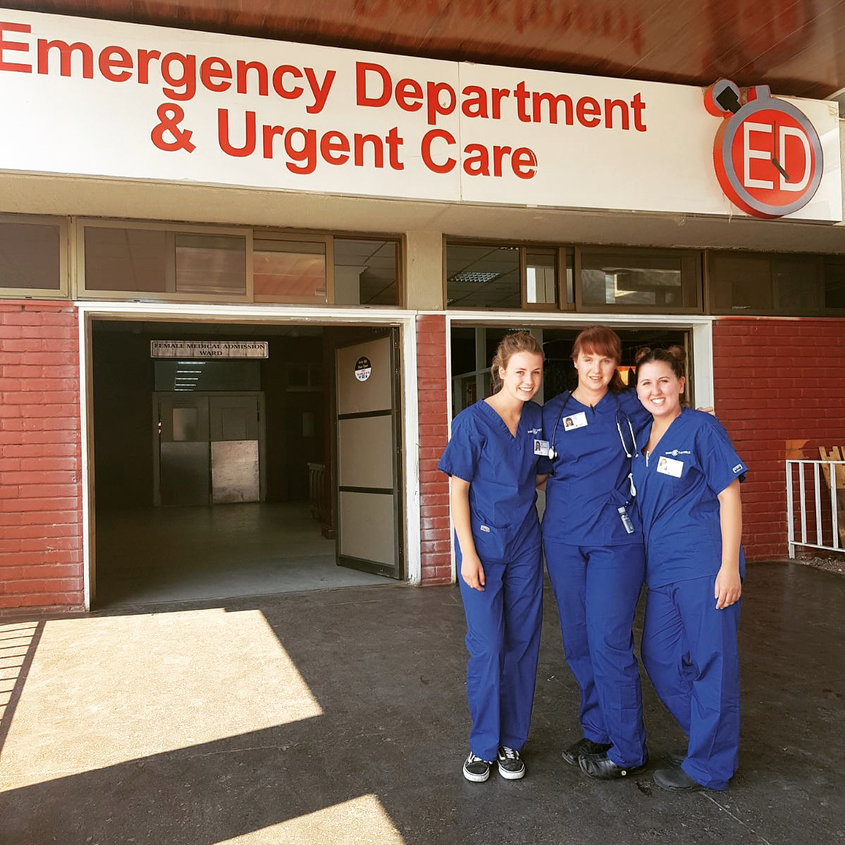
WHAT ARE THE BENEFITS OF A PARAMEDIC SCIENCE PLACEMENT ABROAD?
Our paramedic placements are set out to help you stand apart from the all the other paramedic science students out there.
On one of our paramedic placements you’ll:
- Expand your clinical knowledge and skill set
- Develop your confidence and resourcefulness
- Build your personal and professional network
- Sharpen your verbal and non-verbal communication
- Become more attractive to employers
Hospital placements run Monday to Friday. And that means your evenings and weekends are free to explore whichever destination you’ve chosen to visit.
WHO ARE WE?
We're Work the World — World-renowned experts in planning, customising, and building overseas paramedic placements. Since we were founded in 2005, we've built international paramedic opportunities for 18,000+ students and graduates from over 400 universities globally.
Our personal, end-to-end service that includes:
Placement tailoring (you choose your destination and areas of clinical interest) | Comprehensive pre-trip support | 24/7 in-country support team | Private, catered accommodation
Placement durations start from one week, and arrivals are every Sunday, 52 weeks of the year.
For more detail about how our service works click here.
AM I ELIGIBLE?
You can go on a paramedic science placement abroad if:
- You’re undertaking a paramedic science degree
- You’ve recently graduated with a paramedic science degree
WHERE DO I START?
Your first step is to chat with our team. Our experts are here to answer your questions. They'll give you advice on which destinations are best for placements for paramedic science students and graduates, and to get your place secured.
Get in touch using the short enquiry form.

DESTINATIONS
Ghana - Takoradi

Find out more

Go to Ghana for a paramedicine placement abroad and your focus will be on emergency care. RTAs are common, and you could see hernias, ectopias, hypo- and hyperglycemia, severe diarrhoea, convulsions, and fractures. Socio-cultural circumstances affect how local staff deliver emergency care in Ghana. For example, there’s much less of a sense of urgency in A&E. The lack of resources in our partner hospital means learning how to be creative with the outdated equipment you do have access to.

Sri Lanka - Kandy

Find out more

You will undertake your paramedic science placement in Kandy's most prominent hospital for accident, emergency, and trauma patients. In the Emergency Treatment Unit, which, as you will see, has a very limited bed capacity, the volume of patients often exceeds the number of beds. So, most patients are treated while on trollies. You will almost certainly see resuscitations, but there are other treatments like anti-rabies serum administration and anti-venom administration that will be nothing like what you're used to at home.

Vietnam - Hue

Find out more

While you're abroad in Vietnam, you’ll spend time in the A&E department of our partner hospital. RTAs and trauma are common. Many patients travel in from some of the most remote areas in Vietnam, so you’ll see that the patient demographic is mixed. Even more interestingly, you’ll also see how modern practices complement ancient traditions.

Philippines - Iloilo
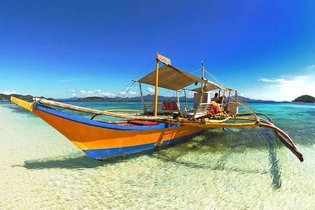
Find out more

You’ll spend time in A&E, OBG emergency, and surgery on your paramedic placement abroad in Iloilo. The A&E department here is busy. It’s the general emergency room for the entire island. You’ll see differences in both resource and practise. Manual intubation and a lack of anaesthesia are two examples. Another key difference is that patients’ families do a surprising amount of the patient care — bagging for example. You’ll see a diversity of cases here too; respiratory failure, gastroenteritis, burns, rabies, hernias, and hyperglycemia are some examples.

Tanzania - Dar es Salaam

Find out more

In Dar es Salaam, you can get experience in both A&E and surgery. On a paramedic placement here, you’ll be in the city’s main A&E department within a national referral hospital. That means you’ll often see critical cases. This is the only department of its kind in Tanzania, so patients will travel for miles to be seen, even in an emergency. You’ll see a diversity of cases; sepsis with multi-organ failure, acute respiratory distress syndrome, cerebral malaria, metabolic disorders, polytrauma, blunt trauma, and penetrating trauma among others.

Kathmandu - Nepal

Find out more

You’ll get experience in a busy emergency department if you undertake your paramedic science placement in Kathmandu. There is a local ambulance service, but patients find their own way to hospital more often than not. This means patients rarely get on-scene or in-ambulance treatment before they arrive — often critically injured — at hospital. As well as trauma cases, you’ll see a number of late-stage conditions. As there is no primary care in Nepal, patients often use the emergency department like a GP surgery.

.jpeg)
"The doctors and nurses were always happy for me to get involved and ask questions, they gave me their time and were more than happy to discuss cases with me".
Bonnii Heber , University of Southern Queensland 2025
Read more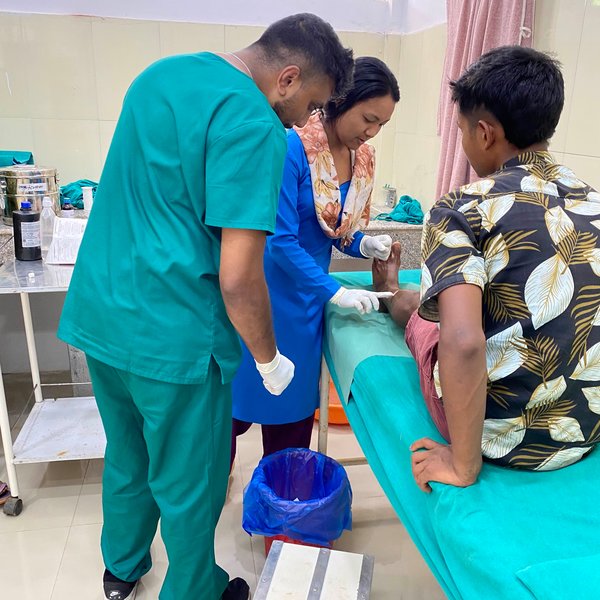
"The constant practice in a resource-limited environment helped solidify these skills in a way that theoretical learning alone couldn’t achieve".
Jaabir Booly, University of Hertfordshire 2024
Read more
"My uni doesn’t offer an elective as part of my degree. I’d always been really interested in healthcare abroad, so it seemed too much of a good opportunity to miss out on."
Georgia Brailsford, University of Lincoln 2022
Read more
"The hospital team were so welcoming. The ED is a fast paced environment, you definitely get more opportunities if you’re proactive".
Devon Mitchell-McCann , Bradford University 2022
Read more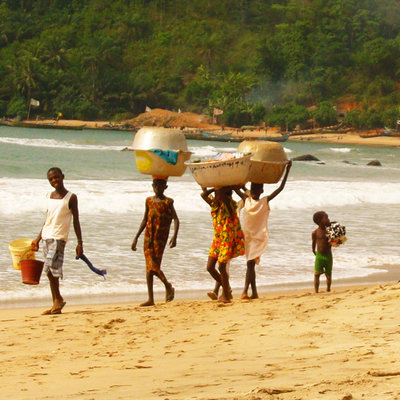
"A man came in quite poorly. He was really delirious and obviously needed oxygen. But the family couldn’t afford it, so he didn’t get it."
Emily Wyre, University of Brighton 2021
Read moreWhat do our paramedic science placements offer?
A Work the World paramedic science placement gives you the chance to undertake a clinical placement in the developing world. You will spend time in a low-resource hospital and see unfamiliar practices and advanced conditions. You can even choose the departments you want to rotate through. Learn more here.
What are the benefits of a paramedic science placement?
The benefits of our paramedic science placements include:
- Expanding your clinical knowledge and skill set
- Becoming more confident, independent and resourceful
- Making yourself more attractive to employers
- Doing some proper travelling
- Building your personal and professional network
- Sharpening your language and communication skills
- Renewing your perspective on care back home
How can I raise funds for my paramedic science placement?
It’s easier than ever to get the funds together for your overseas paramedic science placement. You can take advantage of government programs like OS-HELP, you can take the initiative by starting your own online fundraising page, and you can apply for a huge number of grants and bursaries to help you along the way. Learn how easy it is to raise as much as you need.
What kinds of cases will I see on a Work the World overseas paramedic science placement?
You’ll see cases like:
- Tropical infectious diseases like malaria, dengue fever, and chikungunya
- Much higher numbers of RTAs than you’re used to at home
- Domestic abuse, assault, attempted suicide
- Hypo- and hyperglycaemia
- Sepsis with multi-organ failure
How long is a Work the World paramedic science placement?
A paramedic science placement is as long as you want it to be. Our minimum placement duration is one week, but students typically travel on their paramedic science placements for 4 weeks. There is no upper limit to how long you can travel.
